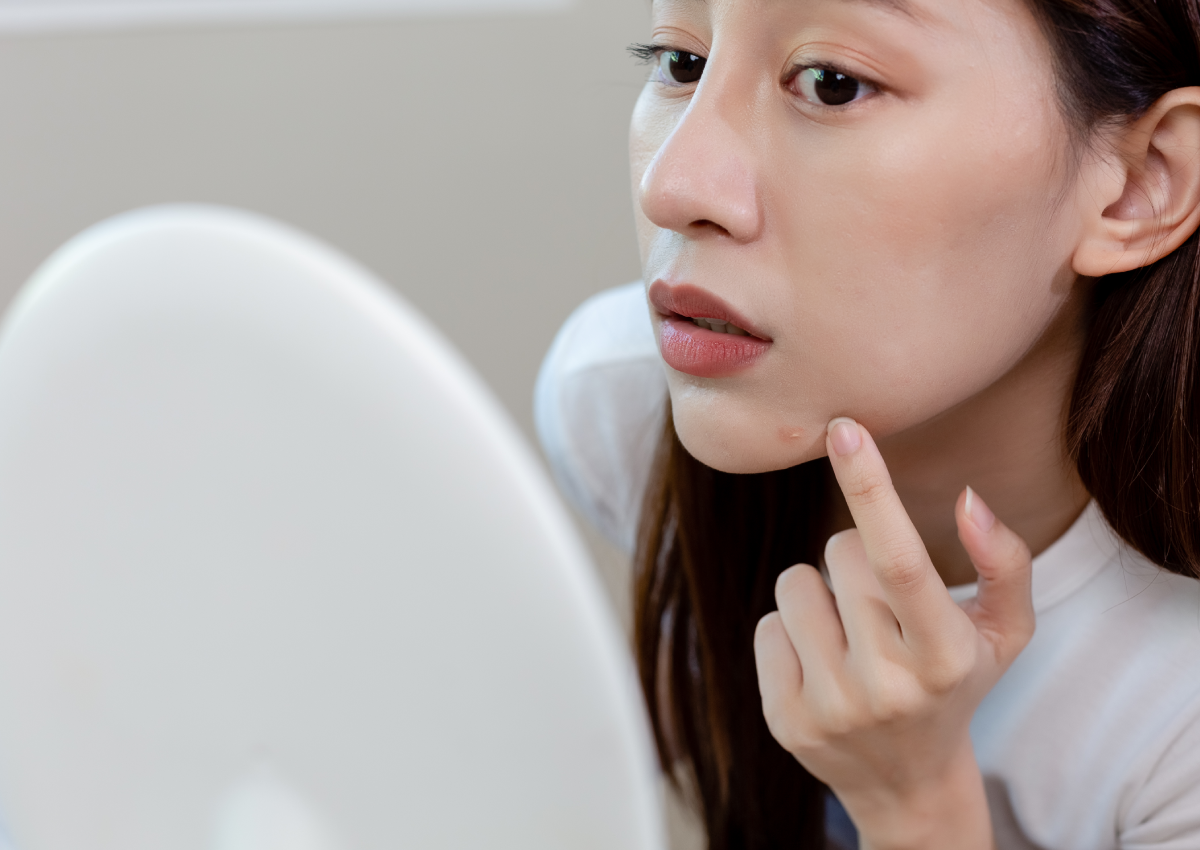Beyond skin-deep: Local doctor unveils tips for healthy skin and a surprising link to gut health


 PUBLISHED ONJune 13, 2023 2:00 AMByYuki Ling
PUBLISHED ONJune 13, 2023 2:00 AMByYuki LingWith Singapore's weather soaring to a high of 35 degrees Celsius recently, it's no wonder we feel like we're stepping into an inferno once we're outdoors.
For those among us who are more sensitive to heat, you may have noticed the blazing temperature causing excessive perspiration, clogged pores and all-round skin irritations ranging from acne to heat rash.
But before you blame it all on the climate, is the inferno weather really the only cause for our skin flare-ups or do we have to dig deeper?
According to Dr Mark Lim, an aesthetic doctor from The Artisan Clinic based in Orchard, the reason for these 'flare-ups' could go beyond skin-deep.
Speaking to AsiaOne, he shares how some skin conditions like eczema and psoriasis can be traced back to a more unlikely cause – one's gut health.
In fact, this correlation between gut and skin health is not a novel concept. Also known as the gut-skin axis, studies have shown that the gut microbiome – the makeup of microorganisms in your gut – plays a key role in a wide range of skin disorders. And vice versa, many skin diseases can be accompanied by a dysregulated gut microbiome.

Delving deeper into the correlation between skin and gut health, Dr Lim reveals how issues in the gut can affect skin conditions, along with recommended tips and advice on managing gut health.
Unlike other internal organs, the skin's visibility makes it easier to observe how healthy one's skin is.
According to Dr Lim, some tell-tale signs of good skin health include being well-hydrated, supple, smooth, as well as being free from itching, redness and soreness. Textures are also important, added Dr Lim, explaining how the skin should not appear cracked, dry or scaly.
On the flip side, warning signs of skin infection or inflammation can include redness, warmness, or tenderness. Dr Lim cautions that changes in the colour and texture of the skin, such as having raised bumps, may even be signs of more serious health problems like skin cancer.
While the skin serves as a marker for underlying diseases, Dr Lim says it can be difficult to relate common skin symptoms to a certain disease or internal condition.
For example, a symptom of redness of one's skin can be attributed to a variety of reasons, be it an infection, inflammation or allergy. Nailing down the exact cause behind a skin condition would hence require detailed history taking and other specific tests and examinations.
As the body's largest organ, the condition of one's skin can be impacted by a multitude of internal and external factors.

Internal factors refer to genetics, ageing, hormones and other pre-existing conditions, whereas external influences can include the environment, sun exposure, diet, exercise and sleep.
Let's take eczema, or atopic dermatitis, as an example. An inflammatory skin condition that causes symptoms such as itchiness, dry skin and rashes, eczema can be triggered by heat, sweat, stress or even allergens like dust and pet fur.
Given Singapore's humid and hot climate that promotes excessive sweating, it's not surprising that about one in five children and one in 10 adults suffer from eczema, according to an article by the Singapore General Hospital.
Besides the weather, Dr Lim says one's diet and food allergens may also give rise to issues like rashes or acne. In fact, some studies have shown links between the severity of acne and the consumption of foods with high glycemic content – foods that raise one's blood sugar quickly – such as white rice, cakes, cookies, potatoes and fries.
While the concept of the gut-skin axis is not new, it has become an emerging area of research with more evidence surfacing in the last decade.
Referring to the connection between the gut and the skin, the gut-skin axis posits that gut bacteria can impact skin health via skin homeostasis and allostasis.
Our gut comprises trillions of microorganisms – bacteria, viruses, and fungi, which forms our gut microbiome. A balanced gut microbiome indicates a healthy mix of good and bad bacteria, whereas an imbalance is characterised by an overgrowth of bad bacteria, along with a lack of variety and quantity of good bacteria species. The latter is also known as gut dysbiosis.
So how does gut dysbiosis affect skin health? For starters, dysbiosis may have an effect on metabolism and other health functions, such as nutrient absorption and toxins excretion, which in turn affect skin conditions.
The presence of bad bacteria will also promote the secretion of specific phenols in the intestines. Research has also shown that the accumulation of phenols can disrupt skin cell differentiation and water retention, as well as increase the probability of inflammation and keratinisation – which can cause skin conditions as well.
Additionally, dysbiosis may cause inflammatory responses which can promote the development of skin diseases such as eczema, psoriasis and even skin cancer.

While Dr Lim believes more research needs to be done on the correlation between gut health and skin health, he's of the camp that certain skin problems can be alleviated by taking care of the gut.
In fact, recent research has shown positive results in healing the skin through the gut. A study conducted by the Chinese University of Hong Kong found that individuals who received the patent probiotic formula SIM01 – which boasts evidence of improving gut microbiome – had a greater improvement in skin condition as compared to the placebo group.
As Dr Lim puts it simply: "A diet for good skin health is probably a diet that's good for overall health."
In other words, you want to focus on having a well-balanced diet, avoiding processed foods and those high in fat, while choosing to consume more fibre, fruits and vegetables to maintain the balance of your gut microbiota.
However, it may not be easy to obtain sufficient "good bacteria" through our daily diet.
Noting the increased popularity of probiotic and prebiotic supplements today, Dr Lim believes the consumption of probiotic supplements can have a positive effect on gut health and in turn, skin health.
Probiotics, which refer to good bacteria found in foods or supplements, can help maintain or improve one's gut microbiome. On the other hand, prebiotics refers to non-digestible food components that help stimulate the growth of these beneficial bacteria, which Dr Lim shares can come from natural food sources like whole grains and bananas.

But among the plethora of supplements out there, how can one determine which is the best choice for them?
According to Dr Lim, some factors that consumers can look out for include the species and strain, the storage form of the probiotic – whether it is a freeze-dried or cold-chain product – and the number of colony-forming units, or CFU. For the uninitiated, CFU count indicates the amount of bacterial cells in a probiotic supplement.
A common misconception is that a higher CFU count means better quality. But it is critical to note that other factors – such as whether the probiotics are live and microencapsulated – come into play when determining the quality of such supplements.
Given the diversity of diets today and the uniqueness of every person's gut microbiome, Dr Lim believes that consuming a supplement that is more tailored to one's diet will also be beneficial.
For instance, the typical diet of an Asian and Western person can vary quite significantly. Due to differences in diets, the gut makeup of individuals from each population will differ as well.
"If there is research to show that this specific deficiency in one's diet can be addressed with this particular probiotic, then it definitely will be a game changer."
"After all, it makes sense to take something that is tailored for you, rather than something that is generic," Dr Lim advised.
This article is brought to you in partnership with GenieBiome Limited (G-NiiB Immunity+).
No part of this story or photos can be reproduced without permission from AsiaOne.